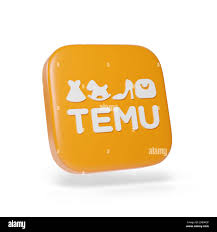The European Union (EU) has accused popular online shopping platform Temu of failing to protect consumers by allowing the sale of illegal and potentially harmful products, in violation of its Digital Services Act (DSA).
In a statement released on Monday, the European Commission expressed serious concerns that Temu, despite its rapid growth across the EU, has not done enough to assess risks or stop the sale of unsafe goods. The Commission said that investigations showed that EU consumers are exposed to a high risk of encountering illegal products while shopping on the platform.
This development comes after an official “mystery shopping” exercise uncovered a large number of non-compliant items, including dangerous baby toys and electronic devices. The EU warned that these products could cause physical harm or safety issues for buyers, especially in the absence of proper monitoring and regulatory controls by the platform.
Temu, owned by Chinese company PDD Holdings, only launched in Europe in 2023 but has quickly become one of the most visited e-commerce sites in the 27-member bloc, boasting nearly 94 million monthly active users. However, according to the Commission, the company’s risk assessment report submitted in October 2024 was found to be “inaccurate” and based on general market trends rather than actual data from Temu’s operations.
The findings are part of a wider investigation under the Digital Services Act, a new set of EU rules that aims to hold major online platforms accountable for harmful content, fake listings, and a lack of transparency in digital operations. The DSA mandates that Very Large Online Platforms (VLOPs) like Temu must take active steps to detect and remove illegal goods and ensure user safety.
If Temu is officially found guilty of breaching the rules, the company could face severe consequences. Penalties under the DSA can reach up to 6 percent of a company’s global annual revenue. In addition, regulators may require the platform to introduce urgent reforms to improve safety and compliance.
The EU’s preliminary assessment also raised concerns about Temu’s platform design and recommendation systems, suggesting that some features could be addictive or harmful to users’ physical and mental health. The Commission is examining how the platform’s algorithm pushes certain content or products, especially to vulnerable groups.
Temu will now have a chance to respond to the EU’s claims and provide further evidence as the investigation continues. However, this probe is only part of a larger effort by Brussels to tighten control over powerful digital platforms. Other companies already facing scrutiny under the DSA include AliExpress, Facebook, Instagram, X (formerly Twitter), and TikTok.
The DSA has not gone without criticism from outside the EU. Last week, the Republican-led Judiciary Committee of the U.S. House of Representatives issued a scathing report calling the EU’s digital rules a “foreign censorship threat.” Congressman Jim Jordan, the committee’s chairman and a strong ally of former President Donald Trump, is scheduled to meet with EU digital affairs chief Henna Virkkunen in Brussels to discuss the matter.
Meanwhile, the EU is looking beyond just platform content and is also focusing on the huge volume of parcels entering Europe, most of them from China. In 2023 alone, the EU received 4.6 billion packages, which breaks down to more than 145 packages every second, with 91 percent coming from China.
To manage this volume and improve tracking, European officials are considering a flat €2 customs fee per package, especially for low-cost goods shipped directly to consumers. This measure could reshape how platforms like Temu operate and price their products in the European market.
The growing tension reflects the EU’s determination to enforce digital laws and protect its internal market. While Temu remains hugely popular for its cheap prices and wide selection, the platform’s future in Europe may depend on how it responds to the new regulatory demands and proves its commitment to consumer safety and digital responsibility.
